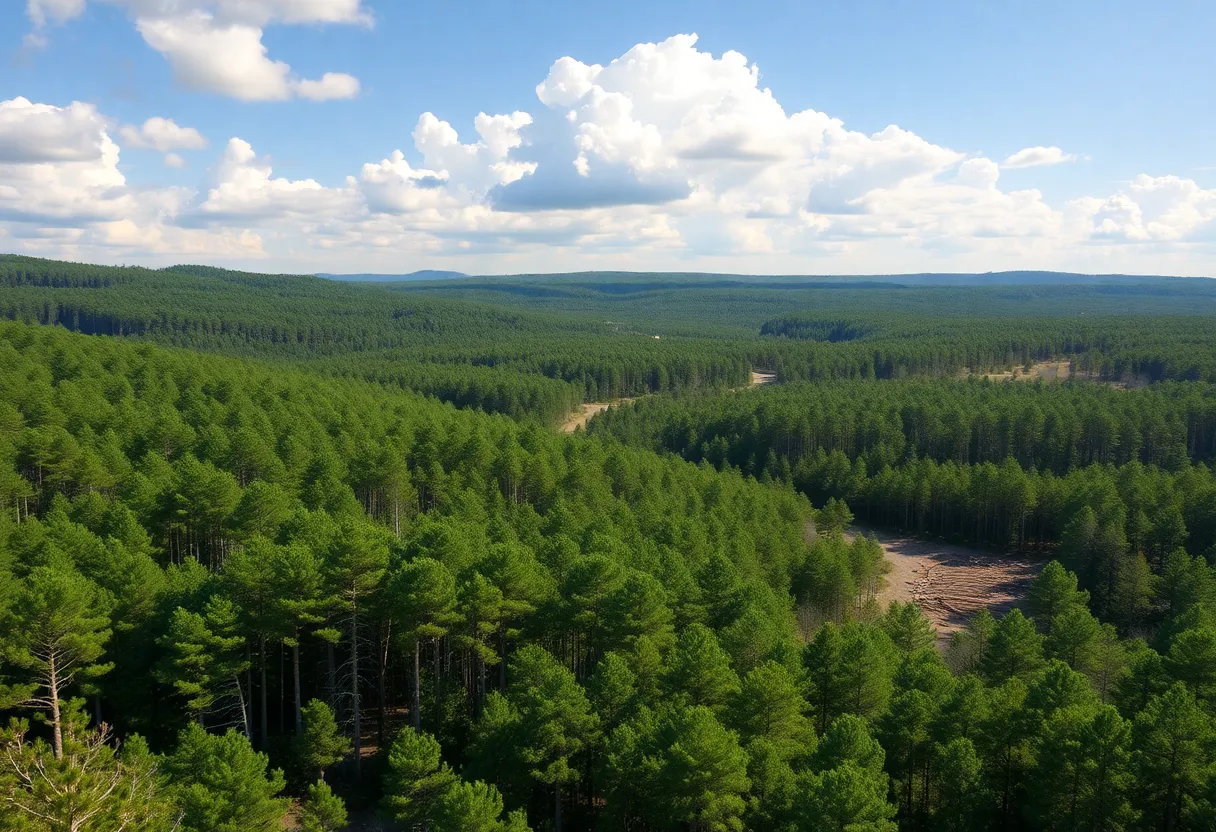News Summary
The timber industry in South Carolina, crucial for the state’s economy, is in decline due to mill closures and job losses. Recent announcements reveal significant job cuts and a shrinking market, prompting concerns for families and rural communities dependent on timber revenue. As the number of mills drops and environmental issues arise, the need for state intervention to revitalize the industry becomes urgent. Initiatives like the Black River park aim to support conservation and economic development, highlighting the critical state of South Carolina’s timber sector.
South Carolina is facing a significant crisis in its timber industry, which has long been a vital part of the state’s economy. This $23 billion sector provides around 100,000 jobs and manages approximately two-thirds of the state’s land. However, recent mill closures and job losses have raised alarming concerns about the future viability of the industry and the livelihoods of those who depend on it.
On October 31, 2024, International Paper announced the closure of its Georgetown mill, leading to the loss of about 700 jobs. This is part of a troubling trend in the state; since 2021, ten mills or wood product companies have either shut down or reduced their operations, leading to a significant contraction in the industry. According to the South Carolina Forestry Commission, roughly 20% of the timber market has vanished, and only about 40% of the wood that is grown in the state is currently being harvested.
The downturn in the timber industry has severely affected families whose livelihoods rely on timber revenue. Many rural families, such as the McFaddens, who manage family timberland, face an uncertain future as timber prices have sharply decreased. This has made it increasingly difficult for these families to sustain themselves. The McFadden family had previously planted loblolly pines with the intent to finance their daughter’s education at Clemson University, where she is currently studying forestry.
The ramifications of the timber industry’s decline extend beyond individual families to the overall health of the state’s economy and its rural communities. The number of operational pulp and paper mills in South Carolina has dwindled to just five, creating a tight supply chain for timber products and intensifying competition within the industry. Loggers are now faced with the challenge of having to thin trees for optimal growth while struggling to find markets for their harvested pulpwood.
Furthermore, environmental advocates are voicing their concern regarding the timber industry’s impact on forest ecosystems. They argue for adopting less aggressive harvesting practices to better protect these vital natural resources. As the industry grapples with these challenges, there is growing pressure for state intervention and support aimed at revitalizing the timber sector. Potential solutions include exploring new markets for sustainable products, such as aviation fuel and mass timber, which could help stimulate the economy.
In response to these challenges, local communities are taking initiative to support conservation efforts and improve public access to natural resources. One notable endeavor is the Black River park initiative, which aims to create a series of recreational spaces along the Black River. This project has a dual focus on economic development while preserving environmental integrity.
The Black River park initiative plans to establish various access points for the public, promoting outdoor activities and fostering local business opportunities. It highlights the importance of conservation and public policy, especially for rural families who often lack access to natural amenities. This effort not only aims to enhance the recreational offerings in the region but also seeks to create a more vibrant community economy in the face of diminishing timber industry prospects.
As the timber industry in South Carolina continues to falter, the question arises about the future of its forests and their role in the state’s economy. With many families, small businesses, and rural economies at stake, the need for effective solutions and support for this critical industry has never been more urgent.
Deeper Dive: News & Info About This Topic
- Post and Courier: South Carolina Timber Industry Crisis
- Wikipedia: Timber Industry
- Manning Live: The History of Greeleyville
- Google Search: South Carolina Timber Industry
- Post and Courier: Black River Park Initiative
- Encyclopedia Britannica: Forestry

Author: STAFF HERE FLORENCE WRITER
The FLORENCE STAFF WRITER represents the experienced team at HEREFlorence.com, your go-to source for actionable local news and information in Florence, Florence County, and beyond. Specializing in "news you can use," we cover essential topics like product reviews for personal and business needs, local business directories, politics, real estate trends, neighborhood insights, and state news affecting the area—with deep expertise drawn from years of dedicated reporting and strong community input, including local press releases and business updates. We deliver top reporting on high-value events such as the Florence Festival of Lights, Pee Dee Pride, and agricultural expos at the Florence Center. Our coverage extends to key organizations like the Florence Regional Chamber of Commerce and the Pee Dee Area Council of Governments, plus leading businesses in healthcare and retail that power the local economy such as McLeod Health and Pee Dee Electric Cooperative. As part of the broader HERE network, including HERECharleston.com, HEREColumbia.com, HEREGreenville.com, and HEREHiltonHead.com, we provide comprehensive, credible insights into South Carolina's dynamic landscape.





